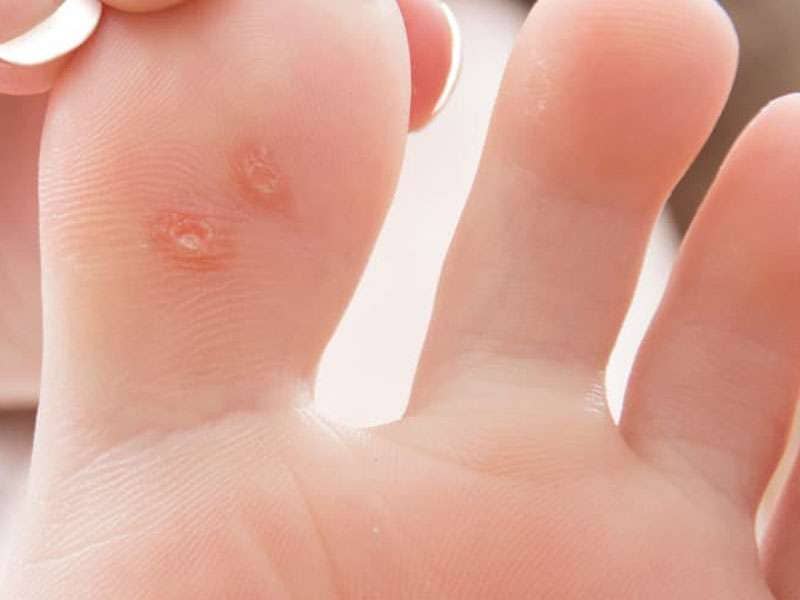Plantar Wart Treatment
The plantar wart is a viral infection that, when left untreated, can start causing stabbing pains every time you step on them. If you have a plantar wart outbreak, you can get fast and effective treatment with Dr. Ruth Kosak, DPM, of Arizona Foot and Ankle Physicians in Scottsdale.
What cause plantar warts?
Plantar warts develop when the human papillomavirus (HPV) enters your skin. HPV can sneak in through a cut, wound, or weakened spot. Not everyone who comes into contact with HPV develops foot warts. Your chances are higher if you:
- Have a history of plantar warts
- Have a weakened immune system due to medical conditions
- Are a child or senior – theses demographics tend to have weaker immune systems
The HPV strain that causes plantar warts thrives in any environment that is
moist, warm, and dark. So your risk of contracting the viral invader also
increases if you walk barefoot in communal areas, like gym locker rooms and showers.
Although warts may be painful, they are harmless. Warts are caused by a viral infection that penetrates the skin through tiny or “invisible” cuts/abrasions. WIthout proper treatment, warts can grow as large as an inch or more in circumference and even spread out into smaller clusters.
Warts can appear anywhere on the foot and toes and appear as fleshy, grey, or brown raised bumps. Warts are spread through touching, scratching, blood from an irritated wart, and even by contact with skin shed from another wart.
How to prevent plantar warts?
To avoid and prevent the spread of plantar warts or before plantar wart even start, follow Dr. Kosak’s recommendation below:
- Avoid direct contact with warts including your own warts on your feet. Do not scratch plantar warts
- Avoid walking barefoot on the wet floor/ground such as around the swimming pools and locker rooms
- Don’t share/use the same emery board, pumice stone or nail clipper on plantar warts on your healthy skin and nails
- Keep your feet clean and dry. Change your socks and shoes daily
- Wash your hands carefully after touching a wart
Warts can be very resistant to treatment and have a tendency to recur. Over-the-counter foot wart treatments are very often ineffective, destroying surrounding tissue and leaving the wart(s) intact.

Plantar wart symptoms
A solitary wart is a long wart that often increases in size. Sometimes, a solitary wart spreads, resulting in nearby satellite warts. Mosaic foot warts are small clusters of warts that grow closely together. In either case, plantar warts tend to form on the weight-bearing areas of your forefoot.
Common plantar wart symptoms include (source: Mayo Clinic):
- Pain in the soles of the feet when standing or walking
- A small, bumpy, fleshy, rough, grainy growth (lesion) on the bottom of your foot, usually the base of the toes and forefoot or the heel
- Hard, thickened skin (callus) over a well-defined “spot” on the skin, where a wart has grown inward
- Black pinpoints, which are commonly called wart seeds but are actually small, clotted blood vessels
- A lesion that interrupts the normal lines and ridges in the skin of your foot
As your wart infection progresses and you continue walking on warts, they might start growing inward. This can cause a callus to form over warts, which can become increasingly painful with every step.
For more information on plantar wart treatment or to schedule an appointment, please don’t hesitate to contact us today at (480) 247-8443!
What are the effective & proper plantar wart treatments?
At Arizona Foot and Ankle Physicians in Scottsdale, our trusted foot doctor Dr. Kosak can diagnose foot warts on the spot without complex procedure or equipment, because most plantar warts have a unique black pinpoint center. This is the result of dried blood from broken vessels. Once she confirms you have a wart outbreak, she can get you started on plantar wart treatment, such as:
- Oral antiviral medications
- Topical antiviral ointments
- In-office acid treatments
- Pulsed-dye laser treatments
- Freezing medicine (cryotherapy)
For more stubborn or painful warts, Dr. Kosak could recommend a procedure known as electrodesiccation and curettage. After numbing your treatment area, Dr. Kosak uses a specialized electric needle to destroy the wart and carefully cut it away. Typically, this procedure is a last resort, since scarring can occur.

To get the best result and recover fast from plantar warts, consitant and timing are important. People with weaker immune systems are likely to take longer to recover from the treatments. The wound from incompleted plantar wart treatment may cause other foot health issues and require more complicated foot care and treatment plan. So don’t wait!